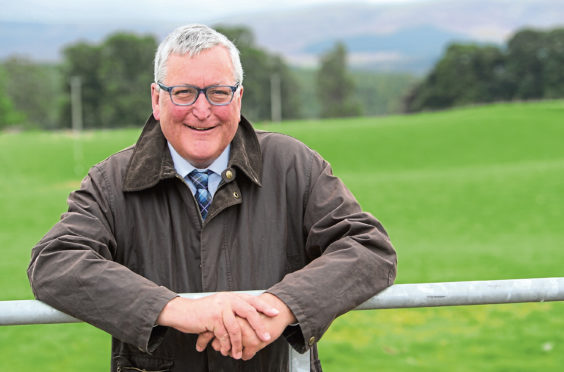A “screeching U-turn” on cuts to Less Favoured Areas Support Scheme (LFASS) payments hijacked a Holyrood debate on the future of rural policy yesterday.
The debate was overshadowed by news that LFASS payments will fall by no more than 20% over the next two years.
During his address to parliament, Rural Economy Secretary Fergus Ewing confirmed LFASS funding would remain at at least 80% of current levels.
The news was contrary to an announcement on Monday where Mr Ewing said payments would reduce by 20% this year and by 60%, or possibly even 80%, next year.
Speaking yesterday, Mr Ewing said: “LFASS funding for 2019 and 2020 will not fall below 20%. I will work to find options to achieve that.”
He said Government would also do all it could to try and reinstate funds in full.
“As I have previously said, any additional funding arising from the convergence review, will be prioritised for this purpose – if there is sufficient monies, we will effectively reinstate LFASS funding levels to 100%,” added Mr Ewing.
“In the mean-time, I remain absolutely committed to maintaining LFASS at the 80% funding level into 2020.”
The announcement was described as a “screeching U-turn” by Conservative Highlands and Islands MSP Donald Cameron who said any cuts to LFASS would have a “catastrophic impact on Scottish farmers and crofters”.
He added: “Going forward, the cabinet secretary must ensure that those farming on ‘less favourable’ land are properly supported.”
Labour MSP for the Highlands and Islands, Rhoda Grant, welcomed the news of a reduction in LFASS cuts but said government should take responsibility for the 20% cuts.
She said the EU requirement for a cut to LFASS payments was a direct result of the government’s failure to move from LFA to areas of natural constraint.
Mr Ewing also said legislation would be introduced in this parliamentary session for a Scottish Agriculture Bill, but the precise timetable for this was not confirmed.
He also pledged to set up a group, at the request of the Liberal Democrats, to look at a bespoke policy for farming and food producers, consisting of producers, consumer and environmental organisations.
The Tories repeatedly described Brexit as an opportunity to design a bespoke system for Scottish agriculture, while north-east Liberal Democrat MSP Mike Rumbles urged his peers to set aside party politics and work together to devise new rural policy.
SNP MSP for Banffshire and Buchan Coast, Stewart Stevenson, added: “As we leave the European Union, we absolutely must have a system which helps us feed ourselves and provides a good living to farmers who do the work.”
